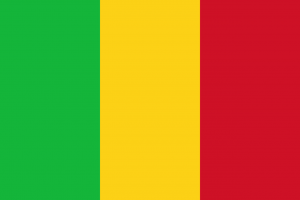Difference between revisions of "Language/Bambara/Grammar/Adjectives"
m (Quick edit) |
m (Quick edit) |
||
| Line 34: | Line 34: | ||
<hr>If you have any questions, please ask them in the comments section below.<br>Feel free to edit this wiki page if you think it can be improved. 😎 | <hr>If you have any questions, please ask them in the comments section below.<br>Feel free to edit this wiki page if you think it can be improved. 😎 | ||
==Related Lessons== | |||
* [[Language/Bambara/Grammar/Plurals|Plurals]] | |||
* [[Language/Bambara/Grammar/Questions|Questions]] | |||
* [[Language/Bambara/Grammar/Conditional-Mood|Conditional Mood]] | |||
* [[Language/Bambara/Grammar/Pronouns|Pronouns]] | |||
* [[Language/Bambara/Grammar/Negation|Negation]] | |||
{{Bambara-Page-Bottom}} | {{Bambara-Page-Bottom}} | ||
Revision as of 23:06, 25 February 2023
Hi Bambara learners! 😊
In today's lesson, we will be discussing adjectives in the Bambara language. Adjectives are words that describe or modify nouns and pronouns. They can be used to give more information about a person, place, thing, or idea.
Adjective Formation
Adjectives in Bambara are formed by adding suffixes to nouns. The suffixes used depend on the gender of the noun being modified. For example, the suffix -wɛrɛ is used to form adjectives from masculine nouns, while the suffix -wɛ is used to form adjectives from feminine nouns.
Masculine Adjectives
Masculine adjectives are formed by adding the suffix -wɛrɛ to the end of a masculine noun. For example, the word for "man" in Bambara is nyɔnɔ, so the adjective meaning "male" would be nyɔnɔwɛrɛ.
Feminine Adjectives
Feminine adjectives are formed by adding the suffix -wɛ to the end of a feminine noun. For example, the word for "woman" in Bambara is kɔnɔ, so the adjective meaning "female" would be kɔnɔwɛ.
Adjective Placement
Adjectives in Bambara are placed before the noun they modify. For example, the phrase "beautiful woman" would be translated as kɔnɔwɛ sɔrɔ.
Adjective Agreement
Adjectives in Bambara must agree with the noun they modify in terms of gender and number. For example, if the noun is plural, the adjective must also be plural. If the noun is feminine, the adjective must also be feminine.
For example, the phrase "beautiful women" would be translated as kɔnɔwɛ sɔrɔw.
Conclusion
In this lesson, we discussed how adjectives are formed and used in the Bambara language. We learned that adjectives are formed by adding suffixes to nouns, and that they must agree with the noun they modify in terms of gender and number.
If you have any questions, please ask them in the comments section below.
Feel free to edit this wiki page if you think it can be improved. 😎
Related Lessons
